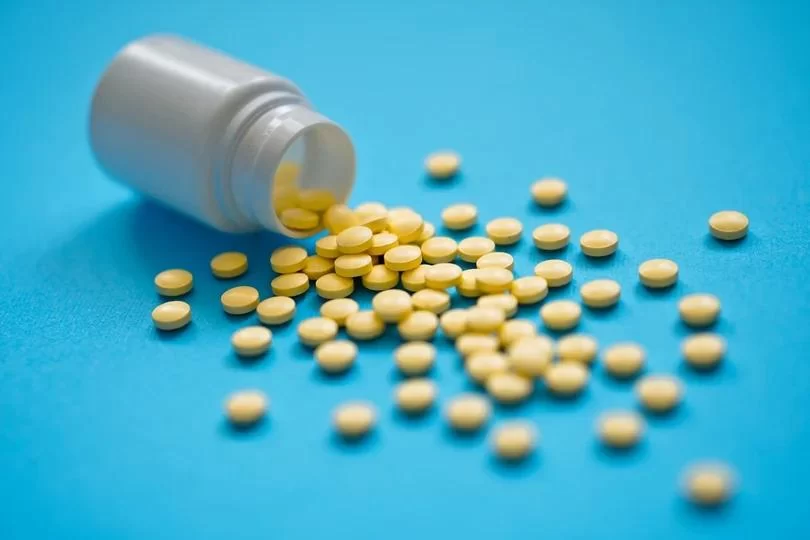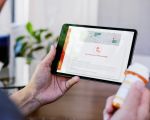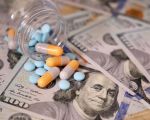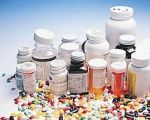
- Importance-of-Getting-Drug-Recall-Notifications
- Trusted-Sources-for-Drug-Recall-Alerts
- How-to-Set-Up-Personalized-Notifications-for-Drug-Recalls
- Real-World-Examples-of-Drug-Recalls-and-Their-Impact
- Leveraging-Pharmacy-for-Updated-Drug-Recall-Information
1. Why It’s Crucial to Get Notified of Drug Recalls
Drug recalls are critical safety measures implemented when medications are found to have defects, contamination, or other risks that can harm patients. Staying informed about these recalls is essential to prevent adverse health effects and ensure that you or your loved ones are not using potentially dangerous products. The timeliness of receiving a recall notification can literally be a matter of health or harm.
Many people underestimate how often recalls happen and how quickly issues can arise even with widely used medications. For example, a widely publicized recall in recent years involved certain lots of blood pressure medications contaminated with harmful impurities. Patients who were promptly notified could stop using those medications and switch to safe alternatives quickly, preventing serious health problems.
Therefore, understanding how to get notified of drug recalls empowers you to take swift action, safeguarding your health and maintaining peace of mind.
The hidden risk of not receiving recall notifications
Without timely notifications, patients may continue taking compromised drugs, which can lead to worsening conditions or unexpected side effects. This lack of awareness often results in delayed medical responses, increasing risks and costs associated with treatment complications.
2. Trusted Sources for Drug Recall Alerts You Can Rely On
When it comes to drug recall notifications, relying on official and authoritative sources is vital. Here are some of the most trusted channels to receive accurate and prompt alerts:
Government agencies and regulatory bodies
In many countries, health authorities such as the U.S. Food and Drug Administration (FDA), the European Medicines Agency (EMA), and other national health departments regularly publish drug recall notices. These organizations maintain websites and newsletters where you can subscribe for email alerts directly related to drug safety and recalls.
Healthcare providers and pharmacists
Your doctor or pharmacist often has access to the latest recall information. They can proactively notify you if a medication you are using is subject to a recall, and help guide you to safe alternatives. Many pharmacies also offer automatic alert services to their customers, which can be an invaluable source of real-time updates.
Online platforms and mobile apps
Several reputable apps and websites specialize in delivering drug safety updates, including recall notifications. These platforms often allow you to customize alerts based on the medications you use or conditions you manage, making the notifications highly relevant and actionable.
3. How to Set Up Personalized Notifications for Drug Recalls
To make sure you never miss a critical update, setting up personalized drug recall notifications can be highly effective. This process involves a few practical steps:
Register on official recall notification systems
Start by signing up for email or SMS alerts from government health agencies in your region. These services are usually free and straightforward to use. For instance, the FDA offers an email subscription service where you can receive alerts filtered by drug type or recall severity.
Inform your pharmacy of your medications
By keeping your local pharmacy informed about all the medications you are taking, they can monitor for any recall updates and reach out to you immediately if necessary. Pharmacies with strong customer communication systems will often track recalls on behalf of their patients.
Use medication management apps
Mobile apps designed to track your medications can send you push notifications about recalls. Many apps allow you to scan your prescription labels or input medication details manually. This technology ensures you receive timely and relevant recall information without constant searching.
4. Real-World Examples of Drug Recalls and Their Impact
Understanding the practical importance of recall notifications becomes clearer when looking at real incidents. Take the 2020 recall of certain valsartan blood pressure medications, which were found to be contaminated with a probable carcinogen. The recall affected millions of patients worldwide. Thanks to robust notification systems, many were informed quickly and switched to safe alternatives without health consequences.
Another case involved a common antacid recalled due to bacterial contamination. Some patients reported severe infections after prolonged use, highlighting how crucial it is to receive and act on recall alerts immediately.
These stories illustrate that drug recalls are not just regulatory formalities but lifesaving interventions. Timely notifications mean timely action.
5. Leveraging Pharmacy for Updated Drug Recall Information and Safe Medication Choices
Pharmacy plays a vital role beyond dispensing medications—they are a trusted partner in medication safety. Regular visits to your pharmacy and discussions with pharmacists can keep you informed about drug recalls relevant to your prescriptions.
Many pharmacies now proactively share drug recall updates with customers and recommend safe alternatives when needed. If you are uncertain about the safety of a medication or want to confirm if a recall affects you, contacting your pharmacy is an excellent first step.
Moreover, Pharmacy offers a wide range of products, services, and personalized support to help you navigate drug safety and find the most suitable medications. Their knowledgeable staff can guide you on how to stay updated with recall alerts and ensure your medication regimen remains safe and effective.
Incorporating Pharmacy’s expertise and notification services into your health routine enhances your protection against potential drug-related risks and keeps you informed in a timely, convenient manner.














